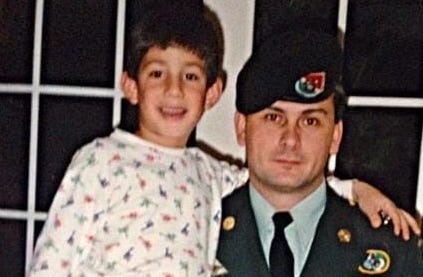
On July 28, lawyers representing ex-Green Beret Michael Taylor and his son Peter met with judge Indira Talwani of the United States District Court for the District of Massachusetts and lawyers from the Department of Justice who are seeking to have Taylor extradited to Japan.
The Taylors have been accused of smuggling Nissan chairman Carlos Ghosn from Japan where he was awaiting prosecution for allegedly committing financial crimes. The Taylors have been alleged to have hatched a plot in which they met with Ghosn, smuggled him onto an airplane in a music speaker box, and flew him out of the country. The Japanese government issued an arrest warrant for the Taylors and made a request to the U.S. government to have them both extradited to face the Japanese criminal justice system.
The extradition hearing itself will occur on a date yet to be determined, but today lawyers met with judge Talwani to discuss whether or not the accused would be permitted bail while a final decision is made after a magistrate judge previously denied it citing the Taylors as a flight risk.
The Taylor's lawyer argued that there are serious concerns regarding probable cause, as in his view the Taylor's broke no Japanese laws and they have only had an arrest warrant put out of them without an indictment which would inform them of the charges against his client. He continued, making the case that there must be an indictment or charge or some other mechanism to determine what the underlying crime in this case would be. The judge sounded skeptical, Connecting Vets listened to the hearing on Zoom, pointing out that the arrest warrant would be enough to start the judicial process. According to what was discussed in court, the documents provided by the Japanese do not mention their law by a specific code number (which would be Section 103) in this case, but rather by the use of certain verbiage in the document itself.
DOJ lawyers, Taylors's lawyers, and the judge then had a discussion about the translation and meaning of specific Japanese words and their relation to their legal system.
The specific word "harbor" was a point of contention, as the Japanese case against the Taylors hinges on what that word means in their legal system. Did the Taylors harbor a criminal or not? Technically, no because Ghosn had not been convicted of a crime although he was in the process of being prosecuted by the Japanese government. Taylor's lawyer also argued that Section 103 as it has been applied in Japan pertains to those harboring a criminal currently being pursued by the police. Ghosn was not.
The discussion became somewhat tense between the judge and the Taylors's lawyer until she said, "stop speaking over me, do not keep interrupting me...I have had enough with the mansplaining." The Taylors's lawyer apologized. As the hearing was taking place over Zoom, the connection made it difficult for him to tell when the judge was speaking.
Did the Taylors's lawyers find a loophole in Japanese law?
"All I can tell you is that there may very well be a gap. No one has ever been prosecuted for jumping bail or helping someone jump bail," in Japan their lawyer argued.
The DOJ lawyers rejected this line of thinking arguing that the judge was being asked to look at entirely new procedural tracks.
“When we engage in these bilateral treaties they only work if both parties are good treaty partners," they pressed. This was an interesting track in itself. In 2019, the Japanese honored the treaty by extraditing two Japanese nationals to the United States who ran a 1.5 billion dollar Ponzi scheme. However, in the case of Toyota executives misleading consumers about the safety of their vehicles more than a decade ago, no extraditions have been forthcoming.
At any rate, DOJ lawyers were unconvinced that any such loophole in the law exists stating, "going to help a multimillionaire escape financial crimes -- if that is not an obstruction of justice then I don't know what is."
When the hearing came to address the issue of releasing the defendants on bail, the judge pointed out that she feels that they have a disrespect for the legal system and the procedures of law in that they are searching for loopholes to slip through. Their lawyers disagreed arguing that Peter Taylor has no criminal record and is a college graduate. Michael Taylor is a decorated veteran of Special Forces and that they both came to the United States to face the American justice system.
DOJ felt otherwise, pointing to an interview that Michael Taylor gave to Vanity Fair magazine before he was arrested.
"Why would someone give an interview like that if they believed they were in any legal jeopardy? The answer is because he thought he was above the law and he was bulletproof," DOJ argued.
Judge Talwani adjourned, pending her decision on the matter of bail. A date has yet to be set for the extradition hearing itself. Michael and Peter Taylor have been incarcerated for two months since their arrest.
